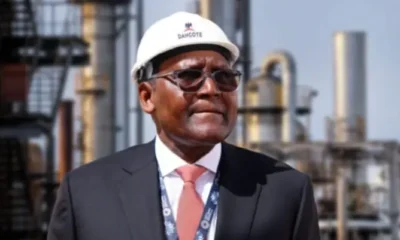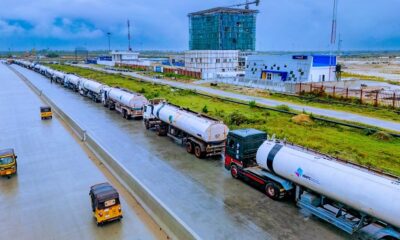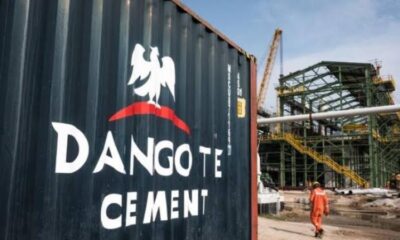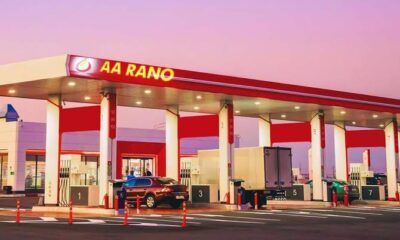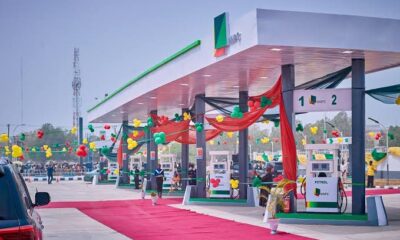The Nation
House of Reps Speaker, others visit Dangote Refinery amid controversy in quality of productions
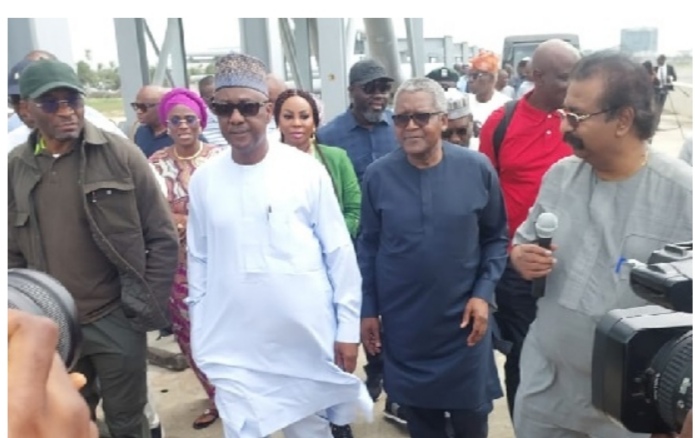
The Speaker of the House of Representatives, Tajudeen Abbas, on Saturday led a delegation to the $20 billion Dangote Petroleum Refinery in Lagos State.
The group arrived at the refinery, situated in the Lekki Free Trade Zone, around 11 a.m. and was welcomed by Aliko Dangote, President of the Dangote Group, along with senior company executives.
During their visit, the lawmakers toured the 650,000 barrels-per-day facility and discussed the plans to commence petrol supply next month. This visit follows a previous tour by the Senate leadership, headed by Senate President Godswill Akpaio, in June.
The visit occurs shortly after Farouk Ahmed, Chief Executive of the Nigerian Midstream and Downstream Petroleum Authority (NMDPRA), raised concerns about the high sulphur content in diesel produced by the refinery.
Ahmed reported that the diesel contains approximately 1,000 parts per million of sulphur, which is significantly higher than the 50 ppm standard required in West Africa.
Ahmed also stated that the Federal Government will continue to import petroleum products, as relying solely on the Dangote refinery would be impractical.
He noted that the refinery, which has been supplying diesel and aviation fuel within Nigeria for several months, has not yet been licensed and remains in the pre-commissioning phase with about 45% completion.
Addressing media reports about attempts to hinder the refinery’s operations, Ahmed clarified, “The claim by some media houses that there were steps to scuttle the Dangote refinery is not so. The Dangote refinery is still in the pre-commissioning stage. It has not been licensed yet; we haven’t licensed them yet.”
The NMDPRA Chief cautioned against over-dependence on the Dangote refinery for national fuel supply, highlighting that the refinery had requested a halt on issuing import licenses to other fuel marketers. “We cannot rely heavily on one refinery to feed the nation,” he said. “Dangote is requesting that we should suspend or stop importation of all petroleum products, especially AGO and direct all marketers to the refinery; that is not good for the nation in terms of energy security. And that is not good for the market, because of monopoly.”
Commenting on the quality of the refinery’s output, Ahmed remarked, “In terms of quality, currently, the AGO quality in terms of sulphur is the lowest as far as the West African requirement of 50 ppm is concerned. Dangote refinery and some modular refineries, like Waltersmith refinery and Aradel refinery, are producing between 650 to 1,200 ppm. So, in terms of quality, their product is much more inferior to the imported quality.”
This visit by the House of Representatives’ leadership underscores the ongoing scrutiny and discussions surrounding the Dangote refinery’s role in Nigeria’s petroleum sector.




